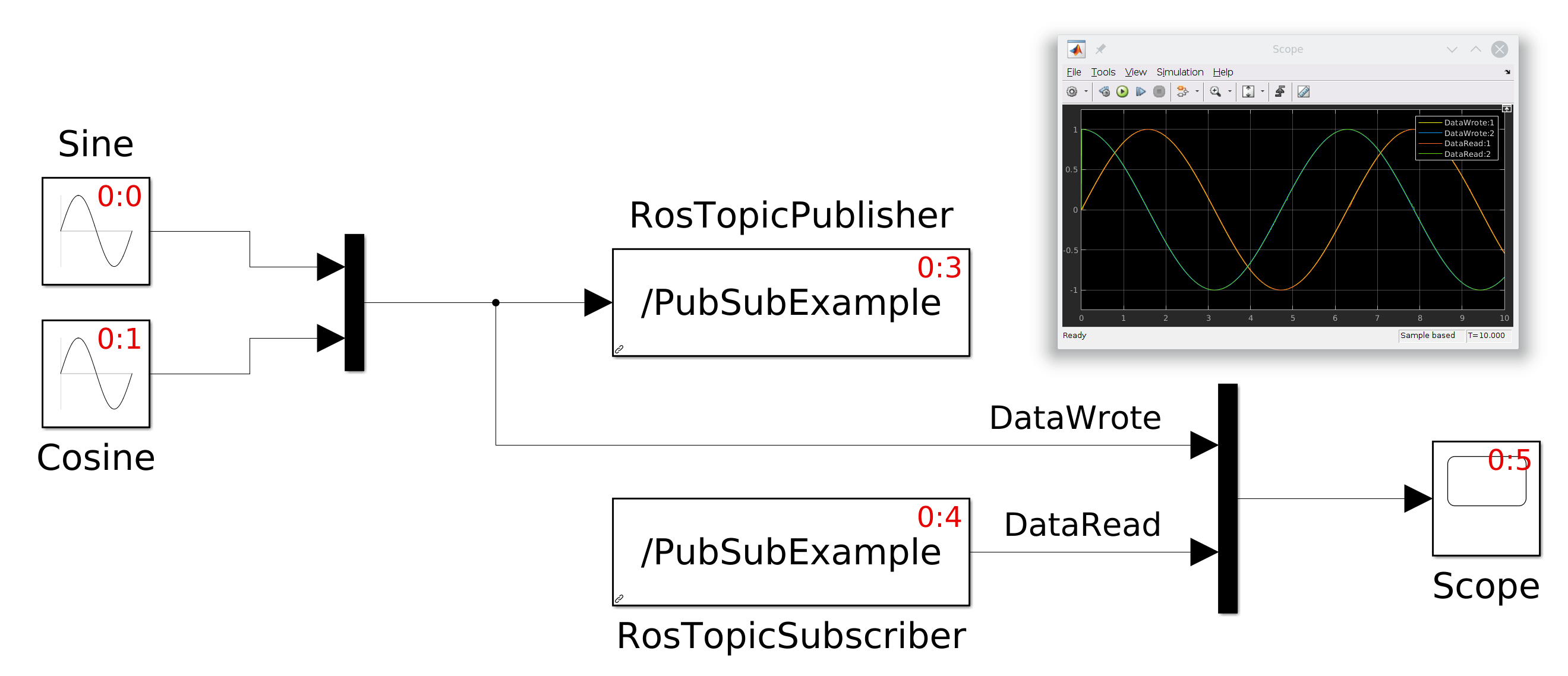This repository contains a robotology/blockfactory plugin that provides a proof-of-concept implementation of ROS functionalities.
The plugin provides two classes:
RosTopicPublisherPublishes a vector message to a topicRosTopicSubscriberSubscribes to a topic and reads the streamed message
The classes provided in this plugin have been implemented following these tutorials and documentation:
After installing robotology/blockfactory , execute the following commands to build the example:
mkdir build
cd build
cmake ..
cmake --build .In order to support Simulink, we provided a small RosToolbox.slx Simulink Library with two blocks wrapping the two classes stored in the plugin library. From a Linux distribution, execute:
# From the root of the repository:
export LD_LIBRARY_PATH=$(pwd)/build:$LD_LIBRARY_PATH
export MATLABPATH=$(pwd)/matlab:$MATLABPATH
matlabNow you can open the RosPubSubExample.mdl model and press the Play button:
We provide an example of the sources autogenerated from the RosPubSubExample.mdl model in the matlab/RosPubSubExample_grt_rtw folder.
In the Setup section, the target associated with the autogenerated sources has been already compiled. You can run it as follows:
cd build
roscore &
./main
The main.cpp will run for 10 seconds. You can check that it is publishing to a topic from another terminal:
rosnode list
# You should see /RosToolbox
rostopic list
# You should see /PubSubExample
rostopic echo /PubSubExample
# You should see:
# layout:
# dim:
# -
# label: "/PubSubExample"
# size: 2
# stride: 1
# data_offset: 0
# data: [-0.9991017216871848, -0.042376287257181525]If you have Simulink Coder you can generate code from the model by pressing the Build button from the Simulink GUI. Note that in order to use the provided CMake project, your active directory in the Matlab workspace should be matlab/.
Then:
# Compile it
cd build
cmake --build .
# Run it
./main

